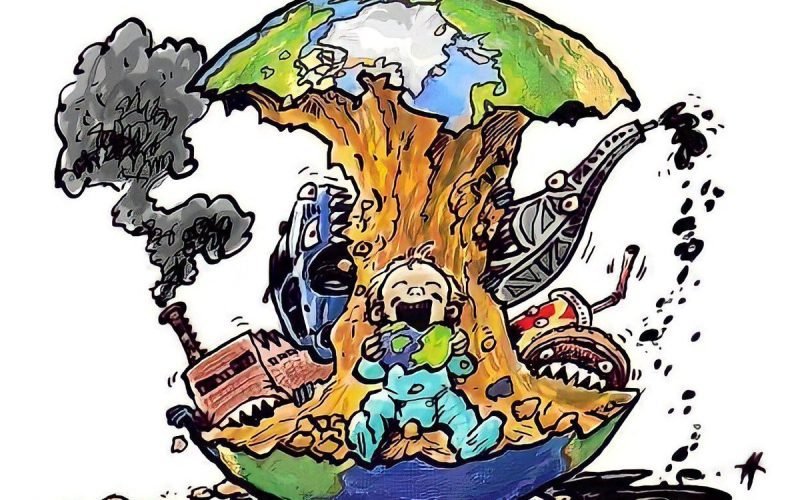Climate Change Mitigation is one of the most pressing challenges of our time, affecting ecosystems, economies, and human lives globally. As societies seek effective solutions, Artificial Intelligence (AI) is emerging as a powerful tool in the fight against climate change. From enhancing renewable energy efficiency to optimizing resource management, AI applications are pivotal in driving sustainable practices and mitigating the impacts of climate change.
Understanding Climate Change Mitigation

Climate change mitigation involves efforts to reduce or prevent the emission of greenhouse gases and enhance carbon sinks to stabilize the Earth’s climate. These efforts aim to limit global temperature rise and minimize adverse environmental and socio-economic consequences.
AI for Renewable Energy Optimization
AI algorithms optimize the generation, distribution, and consumption of renewable energy sources such as solar and wind power. By analyzing weather patterns, energy demand, and grid performance, AI improves efficiency, reduces costs, and integrates renewable energy into existing power infrastructures seamlessly.
Smart Grids and Energy Management
AI enhances smart grid technologies by predicting energy demand, balancing supply from renewable sources, and managing energy storage systems. These capabilities enable grids to operate more efficiently, reduce carbon footprints, and enhance grid resilience against climate-related disruptions.
Precision Agriculture and Resource Efficiency
AI-driven precision agriculture techniques monitor soil health, optimize irrigation schedules, and predict crop yields based on environmental conditions. By minimizing resource inputs such as water and fertilizers, AI promotes sustainable farming practices, mitigates land degradation, and reduces agricultural emissions.
Forest Monitoring and Biodiversity Conservation
AI analyzes satellite imagery and sensor data to monitor deforestation, assess biodiversity loss, and combat illegal logging activities. By identifying forest cover changes and habitat disruptions, AI supports conservation efforts, restores ecosystems, and preserves carbon sinks crucial for climate regulation.
Climate Modeling and Predictive Analytics
AI-powered climate models simulate complex interactions between atmospheric, oceanic, and terrestrial systems to predict climate patterns and extreme weather events. These models provide insights into climate change impacts, inform adaptation strategies, and guide policy decisions for resilient communities.
Sustainable Urban Planning and Transportation
AI optimizes urban infrastructure design, traffic management, and public transportation systems to reduce emissions and improve air quality in cities. By promoting sustainable mobility solutions and efficient urban planning, AI contributes to carbon-neutral urban environments and enhances quality of life for residents.
Carbon Capture and Sequestration Technologies

AI enhances carbon capture technologies by optimizing chemical processes, identifying suitable storage sites, and monitoring captured CO2 emissions. These advancements support scalable solutions to mitigate greenhouse gas concentrations in the atmosphere and combat climate change impacts.
AI in Environmental Monitoring and Compliance
AI analyzes environmental data from sensors, drones, and IoT devices to monitor air and water quality, detect pollution sources, and ensure regulatory compliance. By providing real-time insights and early warning systems, AI enhances environmental stewardship and promotes sustainable industrial practices.
Ethical and Policy Implications of AI in Climate Action
As AI technologies proliferate in climate change mitigation efforts, ethical considerations such as data privacy, algorithm transparency, and socio-economic impacts become critical. Responsible AI deployment and inclusive policy frameworks ensure equitable access to technological benefits and address potential risks.
The Future of Climate Change Mitigation Using AI
Looking ahead, AI’s role in climate change mitigation is poised to expand with advancements in machine learning. But the robotics and decentralized energy systems. By fostering innovation, collaboration, and global partnerships with AI offers and transformative solutions to safeguard ecosystems, mitigate climate risks, and build a sustainable future for generations to come.
Conclusion
In conclusion, AI represents a catalyst for accelerating climate change mitigation efforts through innovation, collaboration, and informed decision-making. By harnessing AI’s capabilities across sectors, we can advance towards a low-carbon economy, resilient communities, and a sustainable planet for future generations.












